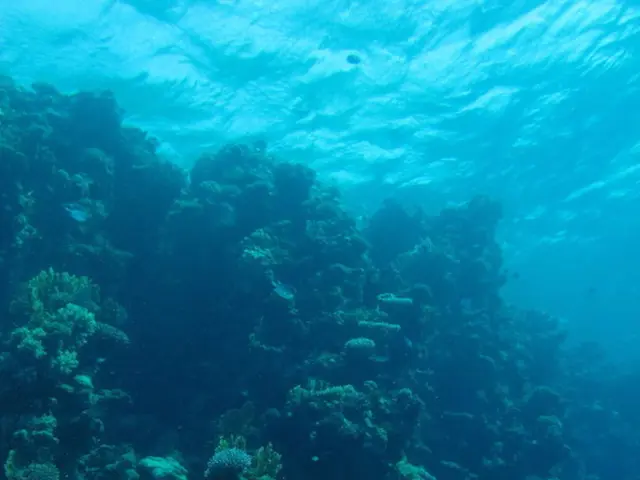Uncovering the Vibrant Indigenous Heritage of New Zealand: The Maori Way of Life
Venture Into the Fascinating Realm of the Maori
Discover the vibrant culture of the Maori, New Zealand's indigenous Polynesian people, a fundamental pillar of the nation's identity. Let's journey together through the history, traditions, and modern-day influence of this remarkable society, which balances ancient customs with contemporary life.
Historical Odyssey
The Maori's arrival in New Zealand from Eastern Polynesia around the 14th century marked the beginning of their captivating story. They established distinct tribes, each with its unique social order and practices. These early Maori were master navigators and warriors, living harmoniously with the land through hunting, fishing, and farming.
The Treaty that Resounded
A crucial moment in Maori history was the signing of the Treaty of Waitangi in 1840, between Maori chiefs and the British Crown. Although intended to protect Maori rights and lands, its interpretation and enactment sparked ongoing controversy, significantly shaping Maori-Crown relations.
Culture and Legacies
Maori culture is a breathtaking tapestry of myths, music, art, and rituals passed down through generations.
Their Heartbeat - The Language
The Maori language, Te Reo Maori, is the essence of their identity. With diligent efforts to revive the language, which was once in decline, it has gained official status in New Zealand, with schools and media embracing its use.
Art and Skillfulness
Maori art plays a significant role in storytelling and showcasing ancestral connections. Traditional carvings, weaving, and tattooing (Ta Moko) are intricate art forms that bear symbolic meanings.
Performing Expressions
Kapa Haka, a powerful blend of singing, dancing, and chanting, is a traditional Maori performance art. Emblematic of community spirit, it is exhibited globally during cultural exchanges and major events.
Spiritual bonds
Spirituality, deeply entwined with nature and ancestor worship, is a fundamental aspect of Maori beliefs. Mythology plays an essential role in their lives, offering explanations for natural phenomena and ethical guidelines.
Community Cornerstones
Traditionally, the Maori society was organized into tribes (Iwi) and sub-tribes (Hapū), with extended family (Whanau) as the building blocks. The Marae, a sacred communal space, remains essential in their daily lives, acting as a center for gatherings, celebrations, and educational activities, epitomizing tribal identity.
Contemporary Maori Life
Today, Maori people are an integral part of New Zealand's multicultural mosaic. Although they face challenges such as health disparities and underrepresentation in leadership roles, their culture significantly impacts New Zealand's national identity.
Maori Imprint in Modern New Zealand
Maori culture has left an indelible mark on New Zealand, from the Haka, once a war dance, now part of national sports rituals to the harmonious blend of Maori and Pakeha (non-Maori) elements in contemporary life.
Economic Strength
The Maori have become emerging economic players in industries such as forestry, fisheries, and tourism, with their sustainable, community-oriented approach resonating deeply.
Political Voice
Distinct political representation for the Maori in the New Zealand Parliament ensures their concerns and viewpoints are amplified in national policymaking.
Struggles and Shining Pathways Ahead
Despite advancements, the Maori continue to face challenges, including health disparities, educational gaps, and the preservation of their language and traditions. Navigating these hurdles is crucial for the prosperity of the Maori community and New Zealand as a whole.
Health and Education
The Maori experience poorer health and lower educational attainment compared to non-Maori populations, necessitating initiatives focusing on culturally-responsive healthcare and education.
Cultural Legacy Protection
Preserving and propagating Maori culture is vital for its survival. Efforts include language revitalization, cultural education, and global cultural exchanges.
Treaty Resolution
The ongoing resolution process through Treaty settlements, addressing historical grievances, is essential for reconciliation and fostering a shared future.
The Maori of New Zealand are an evolving culture with ancient roots. Their robust heritage, trials, and contributions to New Zealand's society serve as testament to their tenacity and adaptability. As New Zealand forges ahead, the Maori will undoubtedly continue to shape its destiny.
Empowerment of the Maori Language
The resurgence of the Maori language, Te Reo Maori, is a key component of the Maori Renaissance. From the brink of extinction, resolute efforts have resulted in its renaissance as a cherished, living language. One can witness this revival through initiatives such as Maori Language Week, the creation of Maori immersion schools (Kura Kaupapa Maori), and integrating the language into public broadcasting.
Cultural Arts and Crafts Rebirth
The resurgence of traditional Maori arts and crafts, such as carving (whakairo) and weaving (raranga), is another aspect of the Maori Renaissance. These art forms not only serve as expressive outlets but also play crucial roles in retelling history and preserving ancestral wisdom. They are taught in various educational institutions and community workshops, thereby ensuring knowledge transfer to future generations.
The Maori and Environmental Stewardship
The Maori concept of Kaitiakitanga, or responsible stewardship of the environment, is a cornerstone of their outlook. This principle has influenced New Zealand's environmental policies, emphasizing sustainability and respect for natural resources.
Stewardship in Practice
The Maori's approach to environmental management, which combines traditional knowledge with modern conservation practices, is gaining recognition and integration into national conservation strategies. Collaborative resource management ensures the Maori have a say in how their ancestral lands are managed.
Tourism and Cultural Connection
Maori culture attracts tourists worldwide, with experiences such as visiting a Marae, witnessing a Kapa Haka performance, or learning about Maori myths and legends, providing insights into Maori life.
Building Cultural Comprehension
These experiences offer a valuable opportunity for increased understanding and appreciation of Maori culture among visitors. They also generate economic opportunities for Maori communities, allowing them to share their heritage and embrace sustainable tourism.
The Future of Maori Culture
The future of Maori culture appears bright, but sustained effort is necessary to ensure its longevity. Support for cultural and language education, coupled with meaningful partnerships between the Maori and the wider New Zealand community, remain indispensable.
Role in National Identity
As New Zealand evolves, the significance of Maori culture in shaping its national identity increases. Embracing this cultural heritage enriches New Zealand, making it stand out on the global stage.
- The vibrant Maori culture, a fundamental pillar of New Zealand's national identity, encompasses various aspects such as history, traditions, language, art, music, performance, spirituality, and contemporary life.
- In modern New Zealand, Maori people impact their multicultural society significantly, from integrating aspects of their culture like the Haka into national sports rituals to making a mark in industries like forestry, fisheries, and tourism with their sustainable, community-oriented approach.
- The Maori have established political representation in the New Zealand Parliament, ensuring their concerns and viewpoints are amplified in national policymaking.
- The Maori language, Te Reo Maori, has gained official status in New Zealand thanks to diligent efforts to revive it, with schools and media embracing its use.
- The resurgence of traditional Maori arts and crafts, such as carving and weaving, is a key aspect of the Maori Renaissance, ensuring knowledge transfer to future generations and preserving ancestral wisdom.






